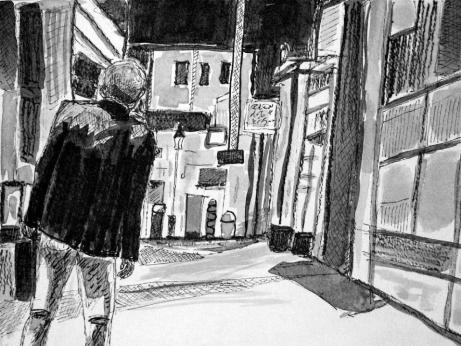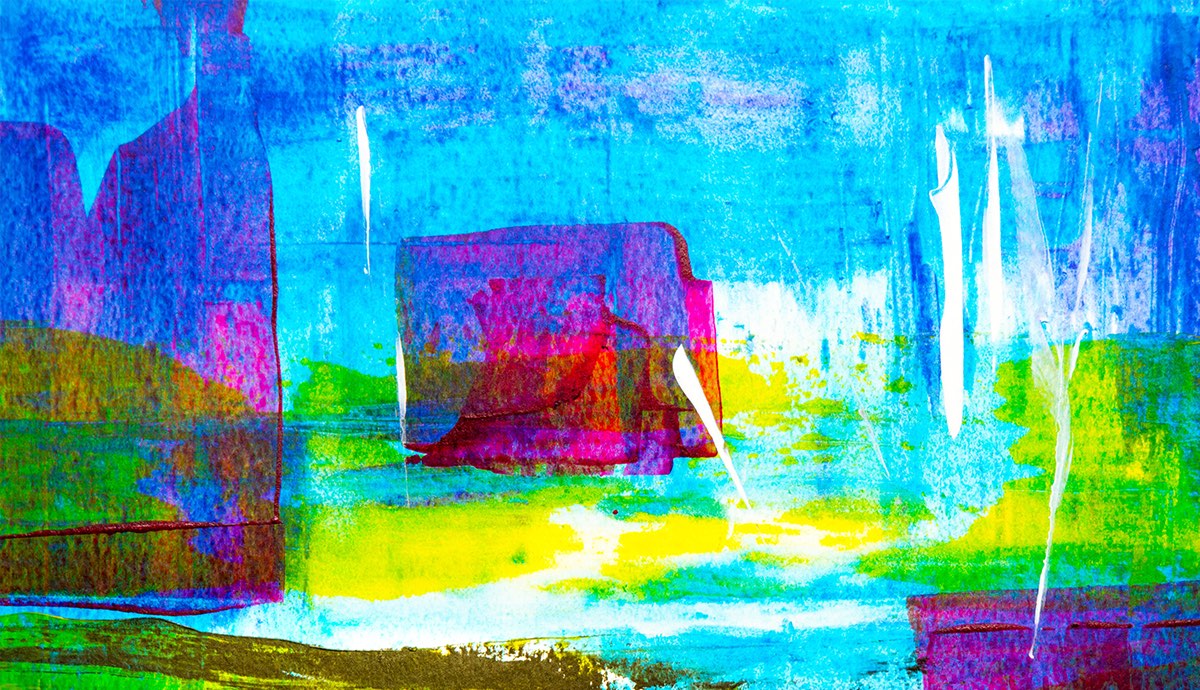Poetry and Other Cities

Notes on “The Archeology of Music” from issue 300.2, Spring 2015.
My father had a certain expression on his face whenever he played. His eyebrows arched high on certain notes and his forehead would round and dip in anticipation of a run. The correct embouchure for a clarinetist tightens the lips and flattens the chin into the comic appearance of a chimpanzee communicating a d ramatic feeling. Yet, he seemed the most himself then—much more accessible somehow than the stormy man who complained about the state of the kitchen or the rudeness of store clerks. Here was a man who existed only once his case opened and the first note filled the room.
ramatic feeling. Yet, he seemed the most himself then—much more accessible somehow than the stormy man who complained about the state of the kitchen or the rudeness of store clerks. Here was a man who existed only once his case opened and the first note filled the room.
Here is a city you used to live in, one you are only returning to now after many absent years. The towering buildings seem familiar, as does the scent rustling over the streets, but it is another city you know, a city that has already ended. I haven’t spoken to my father for years now. There are no adequate explanations for such things, except that he left and his leaving has stayed. I remember tiptoeing past his practice sessions in the living room, afraid my distraction would draw his haunting notes to a halt, the authority his clarinet imbued on space. The sound of rustling sheet music and the angular towers of stacked CDs carve at the edges of my childhood. Music for me is a world of artifacts, physical yet emptied. What is left to us but to wander the city and to leave it strange?
I imagine that I remember the music as it was, distinctly. Of course, it is more than its pitch, its demarcations of sound—the idea of a sound shaped by memories since. Poetry is often like that, too, something more than lost, more than artifact. In 2011, I went to a lecture on the Tomb of Marquis Yi of Zeng, which was buried for over 2,400 years, famous for its set of unique bells and other instruments. The unburying of the site is what captured me, the careful way we are always rediscovering our own histories. The insinuation of archeology, that nothing made should be lost, appealed—that a sound might wait so long to be heard, how it seems so inevitable once it is. It touched on a desire I hardly knew I had, to hear my father play again. It is as much what we bring back to the site as it is what we pull.
Everything we know has been recovered. This is what we fill the cavity with, our recovery.
Illustrations by: Allen Forrest. Born in Canada and bred in the U.S., Allen Forrest works in many media: oil painting, computer graphics, theater, digital music, film, and video. Allen studied acting at Columbia Pictures in Los Angeles, digital media in art and design at Bellevue College (receiving degrees in Web Multimedia Authoring and Digital Video Production). He lives and works in Vancouver, B.C.
Recommended
Nor’easter
Post-Op Appointment With My Father
Cedar Valley Youth Poet Laureate | Fall 2024 Workshop





